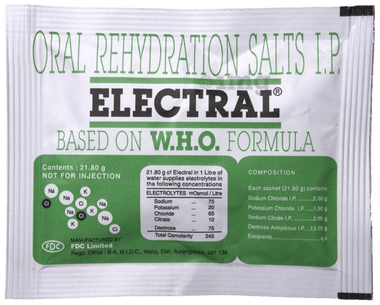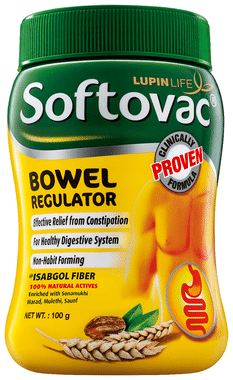Sulphadiazine 500mg Tablet
Prescription Required
Product introduction
Sulphadiazine 500mg Tablet is an antibiotic medicine used to treat bacterial infections in your body. It is effective in infections of the lungs (eg. pneumonia, bronchitis), ear, urinary tract, and intestines. It is also used to treat some parasitic infections.
Sulphadiazine 500mg Tablet works by stopping the growth of bacteria. It may be taken with or without food. You should take it regularly at evenly spaced intervals as per the schedule prescribed by your doctor. Taking it at the same time every day will help you to remember to take it. The dose will depend on what you are being treated for, but you should always complete a full course of this antibiotic as prescribed by your doctor. Do not stop taking it until you have finished, even when you feel better. If you stop taking it early, some bacteria may survive and the infection may come back.
The most common side effects of this medicine include nausea, vomiting, diarrhea, and allergic reaction. Seek emergency medical help if you get a rash, itchy skin, swelling of face and mouth, or have difficulty breathing.
Before using it, you should tell your doctor if you are allergic to any antibiotics (especially sulpha medicines) or have any kidney or liver problems. You should also let your doctor know all other medicines you are taking as they may affect, or be affected by this medicine. Pregnant and breastfeeding mothers should consult their doctor before taking this medicine. Your doctor may monitor you with regular blood and urine tests during treatment.
Sulphadiazine 500mg Tablet works by stopping the growth of bacteria. It may be taken with or without food. You should take it regularly at evenly spaced intervals as per the schedule prescribed by your doctor. Taking it at the same time every day will help you to remember to take it. The dose will depend on what you are being treated for, but you should always complete a full course of this antibiotic as prescribed by your doctor. Do not stop taking it until you have finished, even when you feel better. If you stop taking it early, some bacteria may survive and the infection may come back.
The most common side effects of this medicine include nausea, vomiting, diarrhea, and allergic reaction. Seek emergency medical help if you get a rash, itchy skin, swelling of face and mouth, or have difficulty breathing.
Before using it, you should tell your doctor if you are allergic to any antibiotics (especially sulpha medicines) or have any kidney or liver problems. You should also let your doctor know all other medicines you are taking as they may affect, or be affected by this medicine. Pregnant and breastfeeding mothers should consult their doctor before taking this medicine. Your doctor may monitor you with regular blood and urine tests during treatment.
Uses of Sulphadiazine Tablet
Benefits of Sulphadiazine Tablet
In Bacterial infections
Sulphadiazine 500mg Tablet is an antibiotic medicine which can be used to treat many different infections caused by bacteria. These include infections of the ear, nose, throat, lungs, skin, and eye in adults and children. It is also used for treating typhoid fever and some sexually transmitted diseases like gonorrhea. It works by stopping the growth of the bacteria causing the infection.
This medicine usually makes you feel better quite quickly. However, you should continue taking it as long as it is prescribed even when you feel better, to make sure that all bacteria are killed and do not become resistant.
This medicine usually makes you feel better quite quickly. However, you should continue taking it as long as it is prescribed even when you feel better, to make sure that all bacteria are killed and do not become resistant.
Side effects of Sulphadiazine Tablet
Most side effects do not require any medical attention and disappear as your body adjusts to the medicine. Consult your doctor if they persist or if you’re worried about them
Common side effects of Sulphadiazine
- Nausea
- Vomiting
- Diarrhea
- Allergic reaction
How to use Sulphadiazine Tablet
Take this medicine in the dose and duration as advised by your doctor. Swallow it as a whole. Do not chew, crush or break it. Sulphadiazine 500mg Tablet may be taken with or without food, but it is better to take it at a fixed time.
How Sulphadiazine Tablet works
Sulphadiazine 500mg Tablet is an antibiotic. It stops the bacteria from producing folic acid, a nutrient required for bacterial multiplication.
Safety advice
Alcohol
SAFE
Consuming alcohol with Sulphadiazine 500mg Tablet does not cause any harmful side effects.
Pregnancy
CONSULT YOUR DOCTOR
Sulphadiazine 500mg Tablet may be unsafe to use during pregnancy. Although there are limited studies in humans, animal studies have shown harmful effects on the developing baby. Your doctor will weigh the benefits and any potential risks before prescribing it to you. Please consult your doctor.
Breast feeding
CONSULT YOUR DOCTOR
Information regarding the use of Sulphadiazine 500mg Tablet during breastfeeding is not available. Please consult your doctor.
Driving
SAFE
Sulphadiazine 500mg Tablet does not usually affect your ability to drive.
Kidney
CAUTION
Sulphadiazine 500mg Tablet should be used with caution in patients with kidney disease. Dose adjustment of Sulphadiazine 500mg Tablet may be needed. Please consult your doctor.
Use of Sulphadiazine 500mg Tablet is not recommended in patients with severe kidney disease.
Use of Sulphadiazine 500mg Tablet is not recommended in patients with severe kidney disease.
Liver
CAUTION
Sulphadiazine 500mg Tablet should be used with caution in patients with liver disease. Dose adjustment of Sulphadiazine 500mg Tablet may be needed. Please consult your doctor.
Use of Sulphadiazine 500mg Tablet is not recommended in patients with severe liver disease.
Use of Sulphadiazine 500mg Tablet is not recommended in patients with severe liver disease.
What if you forget to take Sulphadiazine Tablet?
If you miss a dose of Sulphadiazine 500mg Tablet, take it as soon as possible. However, if it is almost time for your next dose, skip the missed dose and go back to your regular schedule. Do not double the dose.
All substitutes
For informational purposes only. Consult a doctor before taking any medicines.
Sulphadiazine 500mg Tablet
₹1.25/Tablet
Sulphaz 500mg Tablet
Jolly Healthcare
₹9.89/tablet
691% costlier
Salphaz Tablet
Jolly Healthcare
₹12/tablet
860% costlier
Quick tips
- Your doctor has prescribed Sulphadiazine 500mg Tablet to cure your infection and improve your symptoms.
- Do not skip any doses and finish the full course of treatment even if you feel better. Stopping it early may make the infection to come back and harder to treat.
- Your doctor will ensure that you are well hydrated during treatment with this medicine.
- Your doctor may get regular blood, urine tests while you are on this medication.
- Do not take Sulphadiazine 500mg Tablet if you are pregnant or breastfeeding.
- Discontinue Sulphadiazine 500mg Tablet and inform your doctor immediately if you get a rash, itchy skin, swelling of face and mouth, or have difficulty in breathing.
Fact Box
Chemical Class
Sulfonamides
Habit Forming
No
Therapeutic Class
ANTI INFECTIVES
Action Class
Sulphonamides
Interaction with drugs
Taking Sulphadiazine with any of the following medicines can modify the effect of either of them and cause some undesirable side effects
Please consult with your doctor. Doctor may monitor liver function and blood cell counts.
Concurrent use may increase the risk of serious side effects of Methotrexate.
If concurrent use is essential, your doctor may monitor your treatment and adjust the doses as per the observations.
Concurrent use may increase the risk of bleeding.
Caution is advised when taking Pyrimethamine with Sulfadiazine. If concurrent use is essential, your doctor may monitor the effects of the medicines and adjust the doses as per the
Do not consume Cholera Vaccine (Inactivated) two weeks before and at least 10 days after consuming Sulfadiazine. Please consult your doctor. Sulfadiazine may reduce the efficacy of
Do not consume Purified Vi Polysaccharide Typhoid Vaccine with Sulfadiazine. If Purified Vi Polysaccharide Typhoid Vaccine is essential, ensure a gap of at least 3 days after disco
Patient concerns
User feedback
Patients taking Sulphadiazine 500mg Tablet
Twice A Day
100%
What are you using Sulphadiazine Tablet for?
Bacterial inf*
75%
Others
25%
*Bacterial infections
How much was the improvement?
Excellent
100%
What were the side-effects while using Sulphadiazine 500mg Tablet?
No Side Effec*
100%
*No Side Effect
How do you take Sulphadiazine Tablet?
With food
100%
Please rate Sulphadiazine 500mg Tablet on price
Not Expensive
50%
Expensive
33%
Average
17%
FAQs
What if I don't get better after using Sulphadiazine 500mg Tablet?
Inform your doctor if you don't feel better after finishing the full course of treatment. Also, inform him if your symptoms are getting worse while using this medicine.
Can I stop taking Sulphadiazine 500mg Tablet when my symptoms are relieved?
No, do not stop taking Sulphadiazine 500mg Tablet and complete the full course of treatment even if you feel better. Your symptoms may improve before the infection is completely cured.
Disclaimer:
Tata 1mg's sole intention is to ensure that its consumers get information that is expert-reviewed, accurate and trustworthy. However, the information contained herein should NOT be used as a substitute for the advice of a qualified physician. The information provided here is for informational purposes only. This may not cover everything about particular health conditions, lab tests, medicines, all possible side effects, drug interactions, warnings, alerts, etc. Please consult your doctor and discuss all your queries related to any disease or medicine. We intend to support, not replace, the doctor-patient relationship.References
- Petri WA Jr. Sulfonamides, Trimethoprim-Sulfamethoxazole, Quinolones, and Agents for Urinary Tract Infections. In: Brunton LL, Chabner BA, Knollmann BC, editors. Goodman & Gilman’s: The Pharmacological Basis of Therapeutics. 12th ed. New York, New York: McGraw-Hill Medical; 2011. p. 1466.
- Chambers HF, Deck DH. Sulfonamides, Trimethoprim, & Quinolons. In: Katzung BG, Masters SB, Trevor AJ, editors. Basic and Clinical Pharmacology. 11th ed. New Delhi, India: Tata McGraw Hill Education Private Limited; 2009. p. 817.
Marketer details
Name: Abbott
Address: 16th Floor, Godrej BKC, Plot – C, “G” Block, Bandra-Kurla Complex, Bandra (East), Mumbai – 400 051, India
Country of origin: India
Lab tests offered by us

Related/Popular tests
DISCONTINUED
We do not facilitate sale of this product at present









